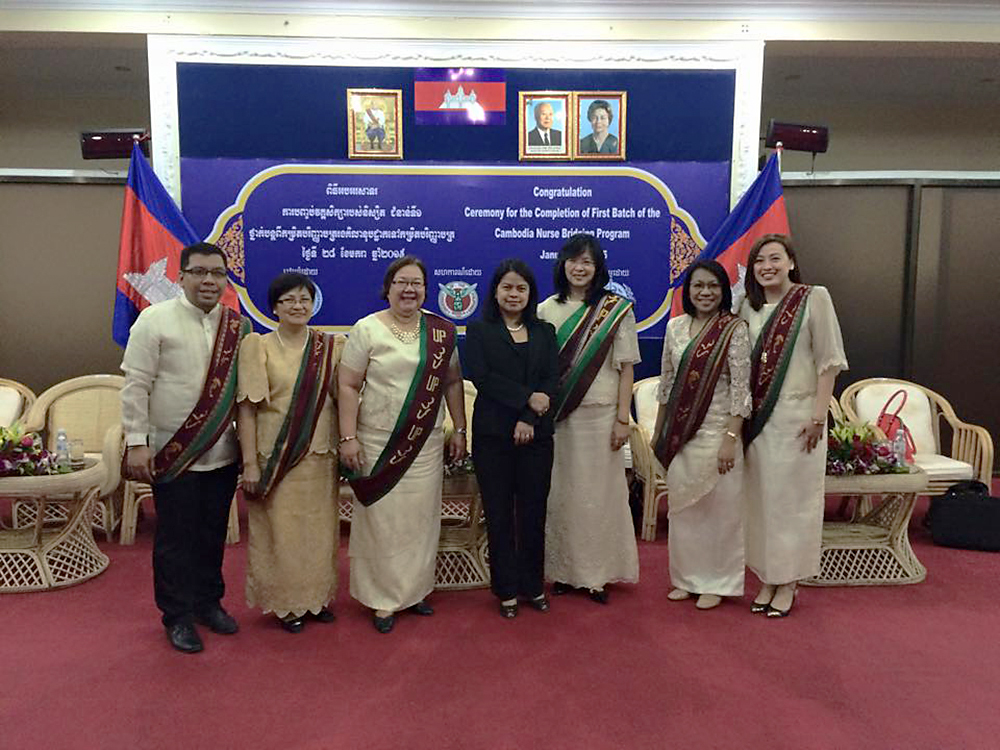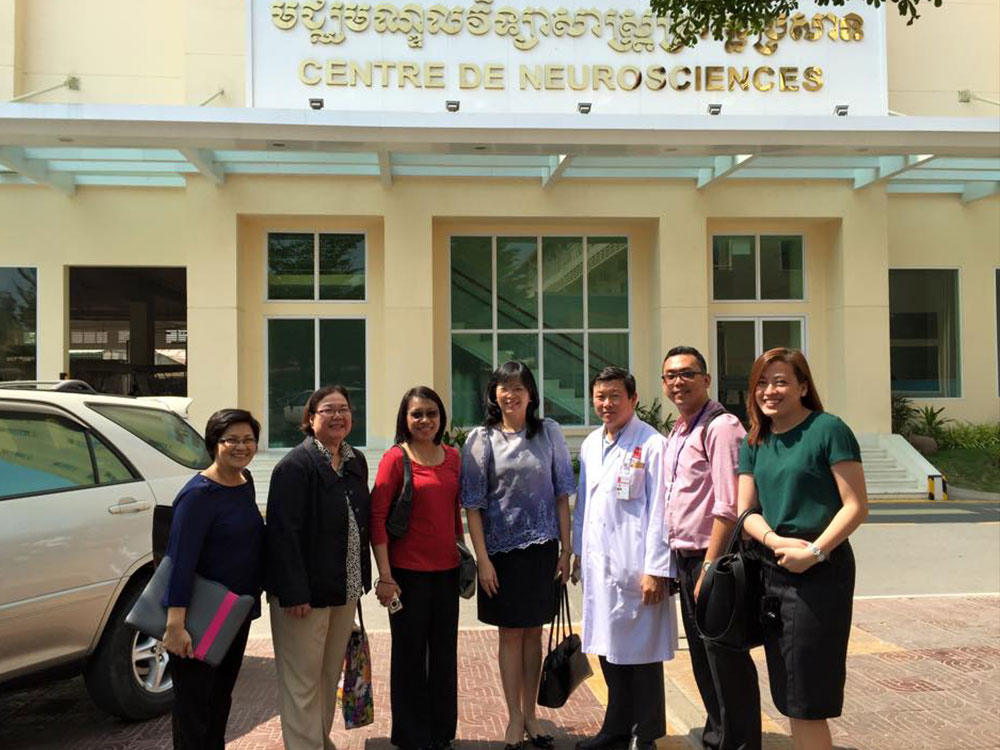WHO Collaborating Center for Leadership in Nursing Development
In 1989, the College was designated by the World Health Organization as a Collaborating Center for Nursing Development in Primary Health Care. And ever since, we have been working with the World Health Organization in matters related to nursing and health.
In 2004, the College was redesignated as a Collaborating Center for Leadership in Nursing Development. We hold this designation up to the present. A WHO Collaborating Center is defined as “an institution designated by the Director-General of WHO to form part of an international collaborative network set up by WHO in support of its programme at the country, intercountry, regional, interregional and global levels”. Its main role is to strategically support WHO to attain these two main needs: “(1) Implementing WHO’s mandated work and programme objectives, and (2) Developing and strengthening institutional capacity in countries and regions.”
The UP College of Nursing is currently the only WHO Collaborating Center in the Philippines. The institution is a member of the Global Network of WHO Collaborating Centers (GNWHOCC), a community of nursing and midwifery leaders, partnered with some leading global health organizations that work together for WHO’s vision of Health for All.
Currently, the College works with WHO along the following terms of reference:
- Support WHO in providing technical assistance to Member States in building the leadership, management, and collaborative roles of the nursing and midwifery workforce.
- Assist WHO in capacity building of nurses and midwives to meet changing population health needs.
- Support WHO in providing technical assistance to Member States to strengthen policy promotion in nursing and midwifery.
Our Work as WHO Collaborating Center
Cambodia Nurse Bridging Program
The Cambodia Nurse Bridging Program is an in-country model on cross-country capacity building program of nurses with the aim of assisting Cambodia in professionalizing Cambodian nursing and keeping them at par with global competency standards through upgrading its Associate Degree in Nursing to a Bachelor of Science in Nursing degree. Participants of this program came from the Regional Training Centres of the four provinces of Battambang, Kampot, Kampong Chang and Steung Tren. This two-year course was fully implemented from February 2013 until November 2014, wherein the participants were trained by chosen professors of the UP College of Nursing to develop competencies as providers of care for different levels and types of client, manager-leaders, researchers, and nurse educators or teachers. This training was done in a week once a month over a span of approximately two years. University of Health Sciences-Technical School for Medical Care (UHS-TSMC) served as the venue for the classroom and skills laboratory activities, while clinical rotation and community rotations were done in partnership with the following institutions: Khmer-Soviet Friendship Hospital (KSFH), Calmette Hospital National Pediatric Hospital, Psar Doem Thkov Health Center.
Global Health Nursing Leadership Program
The Global Health Nursing Leadership Program aims to develop ‘fit for the future’ nursing leaders that will be able to step up and drive health outcomes, face the challenges of the COVID-19 pandemic and achieve Universal Health Coverage and the Sustainable Development Goals. The program is sectioned into three modules: (1) Introduction to Global Health, (2) Strategic Leadership and Management, and (3) Policy and Advocacy that will be done through synchronous – webinars – and asynchronous activities – discussion forums – that participants can engage in. The program will be done online through the use of Zoom and VLE as platforms for implementation of the activities, and will involve both national and international participation.



 Collaborate for Health: Developing Competencies for Interprofessional Education
Collaborate for Health: Developing Competencies for Interprofessional Education